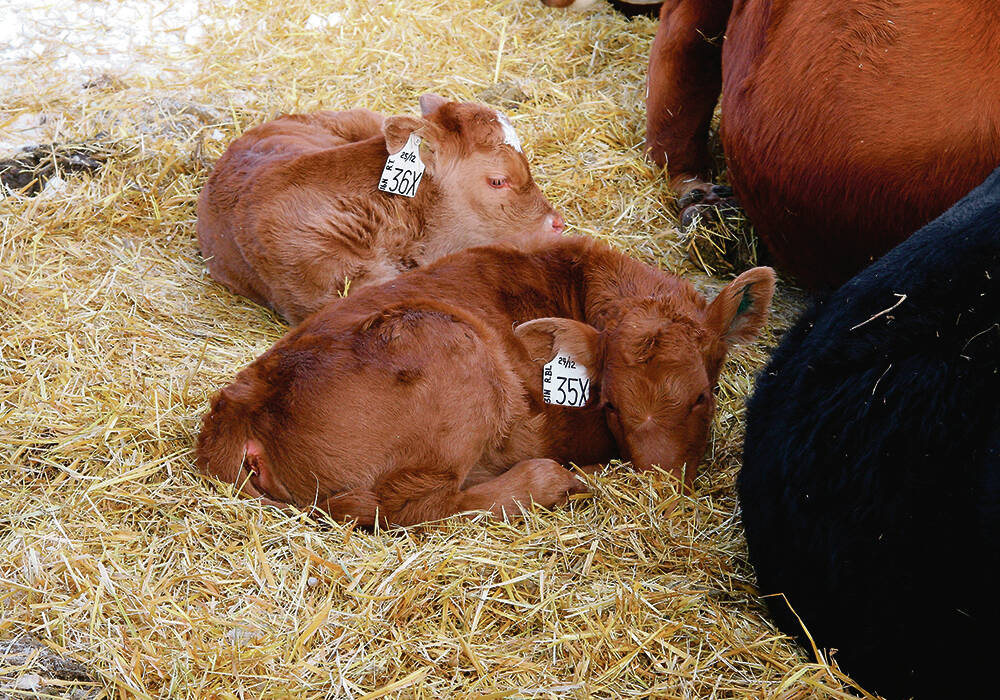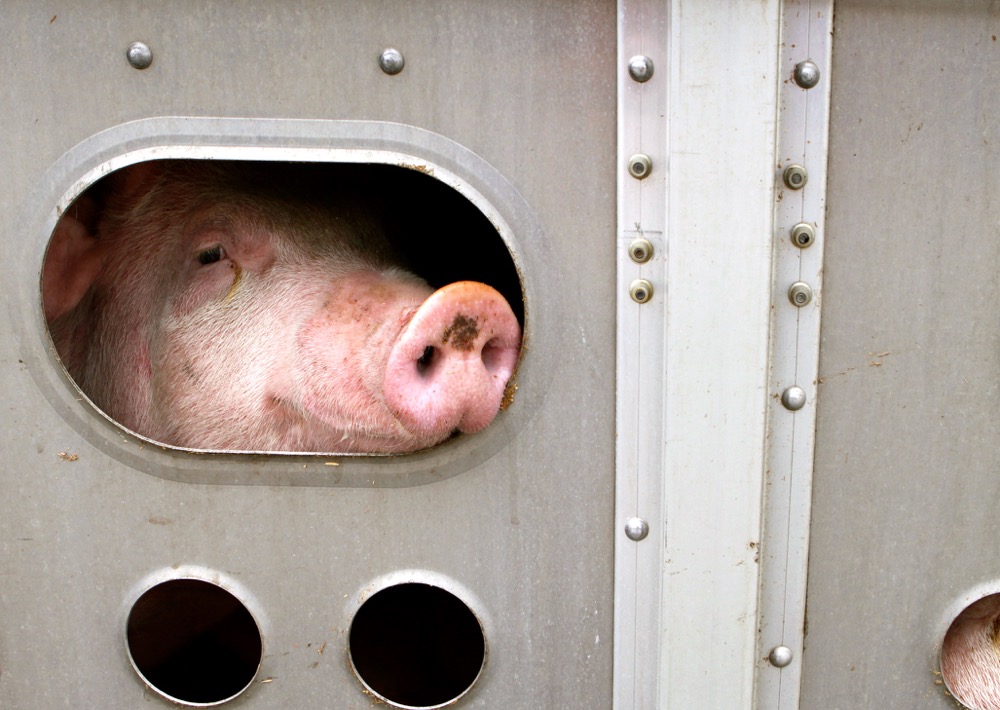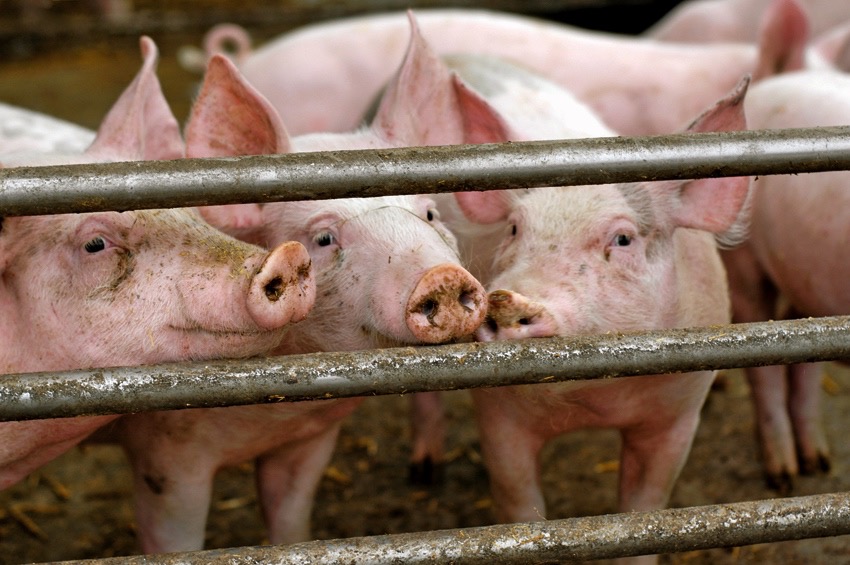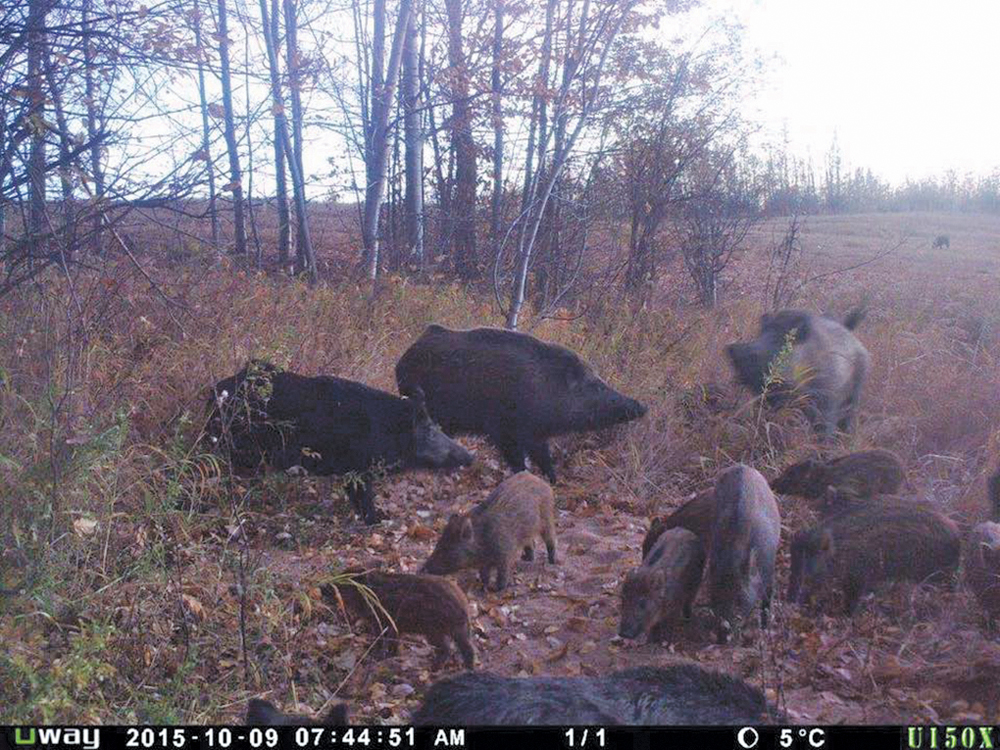Empty swine trucks crossing over the border may be washed in Manitoba in 2018, a move sure to please the Manitoba Pork Council.
MPC has lobbied the Canadian Food Inspection Agency to seal trucks at the border and wash them at a certified station in province.
“They seem to be warming up to it,” MPC chair George Matheson said. “It came down to making sure there were no places where people could slip through and not follow the regulations. Pretty much all trailers have to come through Emerson, but there are other places as well.”
Read Also

Biosecurity during calving: What’s your farm’s risk?
Cow-calf producers in Western Canada should have a well-designed biosecurity plan during calving season to reduce disease risks to the cattle herd.
The pork council argues that domestic wash stations will give more control over biosecurity and lessen the risk of pathogens crossing the border.
The CFIA, however, has been reluctant to change rules it says have helped keep certain diseases out of Canada. Swine trucks must currently be washed in the U.S. to be clean when crossing the border.
Trusted transports
Despite its concerns, the CFIA has joined with MPC and Manitoba Agriculture to develop a “trusted trucker” program and set up a domestic wash system.
MPC has pitched a licensing format for the program, although details are still being developed.
Transporters would need to be licensed, with a proposed wash site set up at Steve’s Livestock Transport in Blumenort, a company that transports close to 90 per cent of the province’s pigs, according to Matheson.
The pork sector will have to closely follow truckers outside Steve’s Livestock Transport to ensure trailers are presented quickly to the certified wash station, Matheson said.
The CFIA has stressed enforcement in order to avoid disease threats if trucks are not washed before they reach the border.
Steve’s Livestock Transport was also the wash station hub in 2014 during a CFIA exemption allowing trucks to be washed in Canada.
The exemption was in light of pork industry fear of PEDv, a virus that was killing 80-100 per cent of naive weanlings exposed to it. At that time, the diarrhea-inducing virus had killed millions of pigs in the United States, but left Manitoba largely untouched.
In reaction to the outbreak, the CFIA introduced an emergency exemption at two Manitoba-U.S. crossings. Trucks at those crossings were sealed and allowed to be washed at an approved station in Manitoba, “until industry’s concerns related to PED could be evaluated.”
“Following a scientific review, the CFIA determined that there is no evidence that the emergency measures are needed,” a spokesperson from the CFIA said by email.
In October 2015, the CFIA removed the exemption and once again required trucks to wash in the U.S., although the sector had until May 2016 to adjust.
The industry immediately protested.
Renewed concern
The issue gained steam with this year’s PEDv outbreak. Eighty cases have been recorded so far this year, eight times more than the previous three years combined.
While new cases have slowed to a stop and infected farms are now beating back the illness, the surging numbers of PEDv during summer raised alarm in other provinces. In June, the heart of the outbreak, the virus prompted an emergency briefing of the House of Commons Standing Committee on Agriculture and Agri-Food.
MPC repeated its call for domestic wash stations during that meeting, arguing that U.S. wash stations may not be rigorous enough with biosecurity.
“The disease is endemic in the United States,” MPC general manager Andrew Dickson told the committee at that time. “It’s in all of these wash stations.”
The CFIA, however, raised concern that allowing trucks into Canada unwashed may prove a larger biosecurity risk and was reluctant to point fingers at the U.S.
“There is no scientific evidence demonstrating that truck washing methods used in Canada are superior to those employed in the U.S.,” the agency maintains. “It is also important to note that while cleaning and disinfecting of trucks at the border helps to prevent the introduction of animal diseases, this is only one part of a biosecurity strategy for disease prevention. On-farm biosecurity measures remain the first and best line of defence for pork producers to prevent the introduction and spread of disease.”
Details unknown
Neither the CFIA nor MPC have given details on the incoming program, saying only that aspects are still in development.
Matheson said it would take little effort to reinstitute the program at the previous Blumenort wash site.
“CFIA, when we last spoke to them, felt that it should be pretty straightforward and sometimes when things are straightforward and relatively simple, they get done,” he said. “They’ve got confidence in us. We’ve got confidence that we can keep it simple and user friendly by the transporters and everyone at the end of the day should be happy. We’re going to keep disease out of this province and also make it very convenient for these transporters who, on the south side of the border, had to find a wash station, and those aren’t on the Interstate, that’s for sure.”
The pork council hopes to see the program in place by early 2018.


















